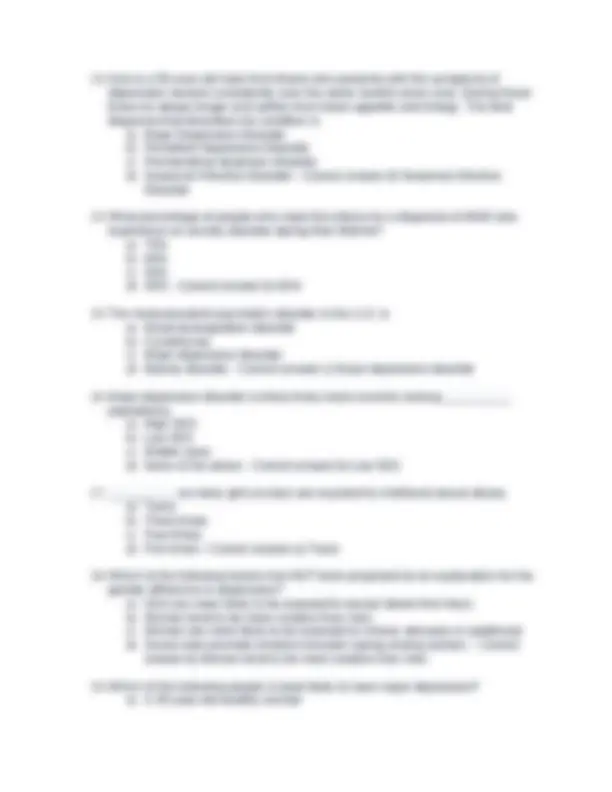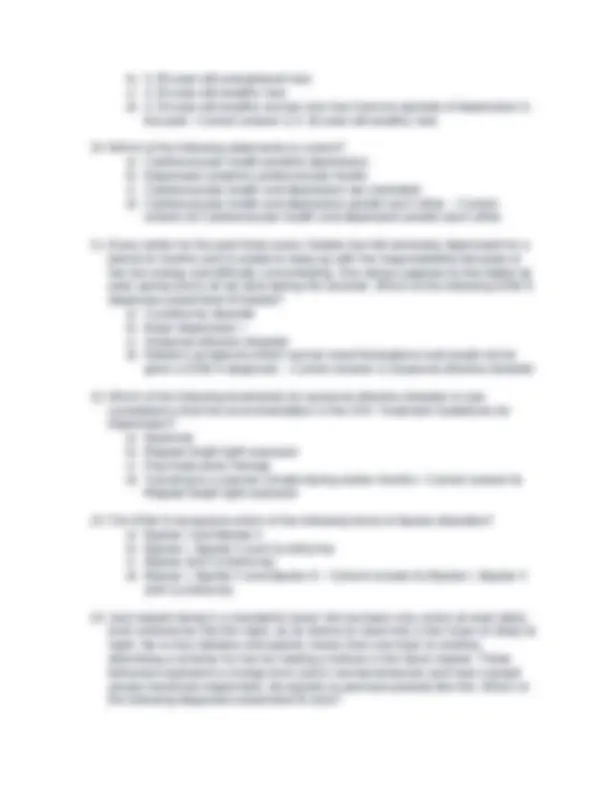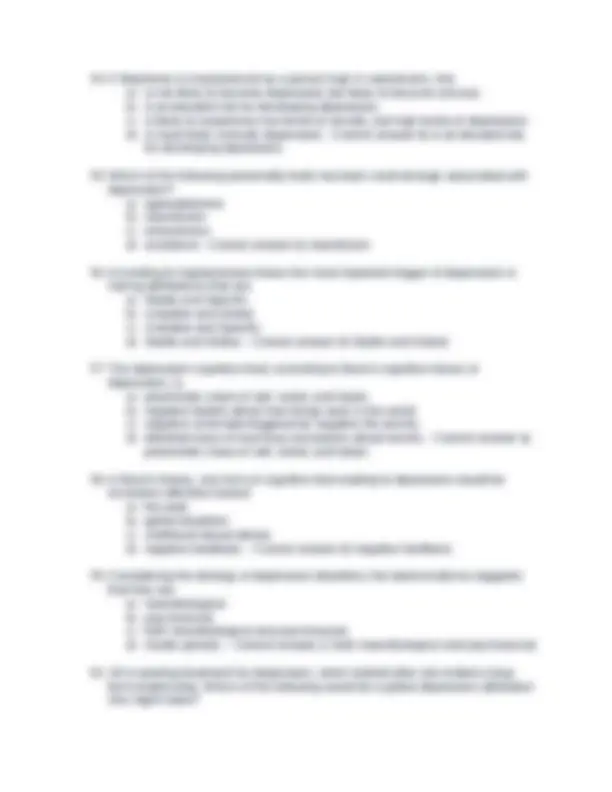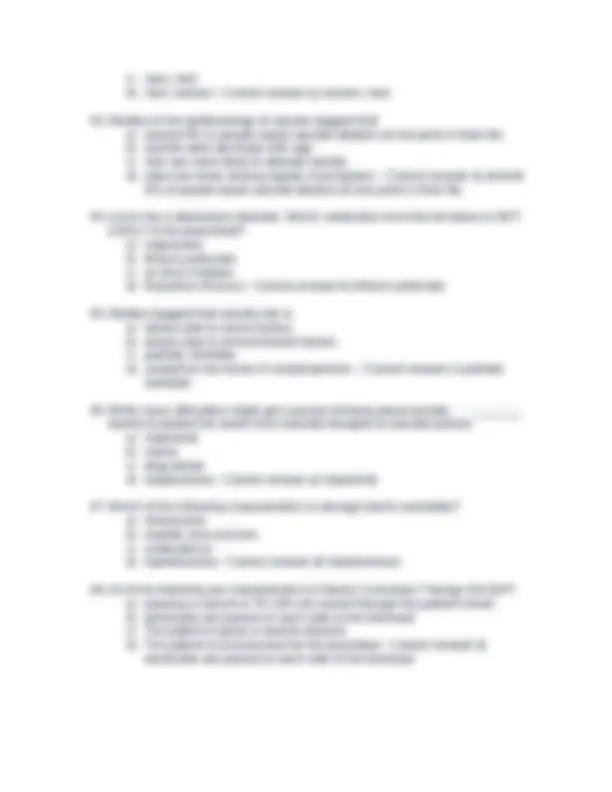












Study with the several resources on Docsity

Earn points by helping other students or get them with a premium plan


Prepare for your exams
Study with the several resources on Docsity

Earn points to download
Earn points by helping other students or get them with a premium plan
Community
Ask the community for help and clear up your study doubts
Discover the best universities in your country according to Docsity users
Free resources
Download our free guides on studying techniques, anxiety management strategies, and thesis advice from Docsity tutors
Abnormal Psychology EXAM QUESTIONS WITH RIGHT ANSWERS TOP RANKED.
Typology: Exams
1 / 18

This page cannot be seen from the preview
Don't miss anything!











b) A 35-year-old unemployed man c) A 20-year-old wealthy man d) A 19-year-old wealthy woman who has had one episode of depression in the past - Correct answer c) A 20-year-old wealthy man
a) Overanxious disorder. b) Dysthymic disorder. c) Bipolar disorder. d) Cyclothymic disorder. - Correct answer c) Bipolar disorder.
d) Depression causes creative outbursts. - Correct answer b) There is a positive relationship between bipolar disorders and creativity.
d) A person who has very sensitive serotonin receptors is expected to experience lots of depressive symptoms as their serotonin levels drop. - Correct answer b) People who are vulnerable to depression may have less sensitive serotonin receptors.
42.. In regards to depression, the amygdala a) helps a person recall painful memories. b) helps a person execute plans. c) regulates heart rate. d) helps a person assess how emotionally important a given stimulus is. - Correct answer d) helps a person assess how emotionally important a given stimulus is.
a) "My relationships end badly because I get jealous and I drive them away." b) "There must be something wrong with me, because I always attract people who are wrong for me." c) "Sometimes I feel there is something the matter with me. Maybe I am not pretty enough." d) "My next relationship will likely be better." - Correct answer b) "There must be something wrong with me, because I always attract people who are wrong for me."
61.. Research indicating that people with bipolar disorder describe themselves as very responsive to rewards may help explain why those with bipolar disorder are at increased risk for becoming manic after a) life events involving goal attainment. b) increasing the number of life needs. c) deep depression. d) receiving gifts. - Correct answer a) life events involving goal attainment.
b) are used almost exclusively, since they have been found to be superior to psychotherapy. c) continue to be used despite evidence of ineffectiveness and serious side effects. d) are used most effectively in conjunction with psychotherapy. - Correct answer d) are used most effectively in conjunction with psychotherapy.